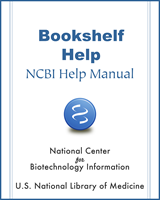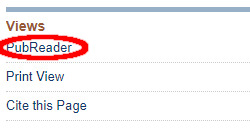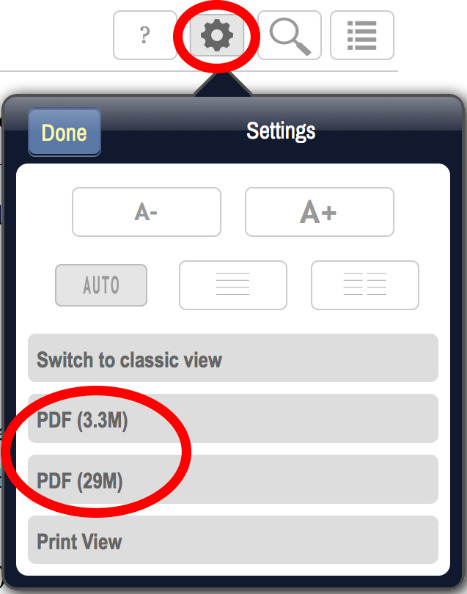NCBI Bookshelf. A service of the National Library of Medicine, National Institutes of Health.
Bookshelf Help [Internet]. Bethesda (MD): National Center for Biotechnology Information (US); 2005-.
Copyright and Permissions
Who controls copyright privileges for the material archived in Bookshelf?
Copyright to all materials deposited in Bookshelf remains with copyright holder. Bookshelf is simply an online collection and does not claim copyright on any material in the collection. Books by US government agencies are in the public domain. See Copyright and Permissions for more information.
For copyrighted works, the name of the copyright holder is indicated at the bottom of each page with the copyright symbol and year of publication. It is also indicated on the Table of Contents page near the thumbnail. Click on ‘Copyright and Permissions’.
Can I use figures and tables from Bookshelf?
You must check the copyright of the book first. In some cases, a license statement is provided which explains whether reuse is permitted.
On the Table of Contents page, Click on the Copyright and Permissions link at the top. If the book is published by the National Center for Biotechnology Information (NCBI) or another US government agency, then the book will indicate the publication is in the public domain. In this case, you must take the next step of looking at the individual figures and tables that you want to use. Permissions may have been obtained from other publishers for the use of the figures and tables. These permissions are noted on each figure and table. Where no permission is noted, you are free to use the figure or table.
If the book is published by another publisher, the name of the copyright holder is at the bottom of each page with the copyright symbol and year of publication. You will need to contact the respective copyright holder regarding permissions for use of all figures and tables in the book. To contact the copyright holder for permission, click on the link from the publisher’s name on the book’s Table of Contents page. Check the publisher’s website for “rights and permissions” information.
PubReader and PDF format
Why do some books have PDF files and others do not?
PDF files are made for several books created by NCBI. Some publishers also make available a PDF version of the full-text publication on Bookshelf. Books that have PDFs available for the entire publication have a “PDF version of this title” link on the right-hand side of the Table of Contents and all chapter pages. If PDFs are available for each chapter of a publication, there will be a “PDF version of this page” link on the right-hand side of each chapter page.
Adobe Reader is required to view PDF files. The software is free and can be downloaded from the Adobe Web site: http://get.adobe.com/reader.
How can I switch from the “classic” view back to the Pubreader view?
You can go to the Pubreader view from the “Views” sidebar menu.
The default setting is the classic view.
How can I switch from the PubReader view back to the “classic” view?
You can go back to classic view from the settings menu (gear icon).
The default setting is the classic view.
How can I access the PDF version in PubReader view?
Tap on the gear icon near the top right corner of the PubReader page, then tap the “PDF” option on the resulting menu. If there are two “PDF” options, tapping the larger-sized PDF option will download the “whole book” PDF, and tapping the smaller one will download the “chapter-only” PDF.
If no PDF option appears under the gear menu, then there is no PDF available for the document you are reading.
Additional help on PubReader topics is found by tapping the question mark icon near the top right corner of PubReader pages, and at https://www.ncbi.nlm.nih.gov/pmc/about/pubreader/.
Hard Copy Versions
Can I buy books from Bookshelf?
No. As a library, we do not sell books; rather, we collect and display them for people to use in agreement with the book publishers. To purchase books, you will need to contact the publishers directly. The publisher’s website can be found by clicking on the publisher link in the book details at the top of a book’s Table of Contents page.
How can I order a SAMHSA TIP?
To request a print copy of a TIP (Treatment Improvement Protocol) publication, go to this Substance Abuse and Mental Health Services Administration (SAMHSA) Publications Ordering Web page at: http://store.samhsa.gov Or, please call SAMHSA at 1-877-SAMHSA-7 (1-877-726-4727) (English and Español).
How can I order Evidence Reports/Technology Assessments (ERTAs) or Comparative Effectiveness Reviews?
The Evidence Reports/Technology Assessments (ERTAs) and Comparative Effectiveness Reviews (CERs) are provided to Bookshelf by the Agency for Healthcare Research and Quality (AHRQ). Ordering information for AHRQ publication is available at: http://www.ahrq.gov/research/publications/order/index.html
Applications and Submissions
How can I participate in Bookshelf?
If you would like your book to be included, first submit an application. Each application goes through a review process. The book must fall within the scope of core biomedical topics as defined in the NLM Collection Development Guidelines. The book is also evaluated for editorial and scientific quality, as well as the technical quality of its digital files. Publishers must provide Bookshelf the full text of content in XML format using a mutually agreed upon DTD.
Bookshelf requires a participation agreement. For details, please see Information for Authors and Publishers
Who may contribute to Bookshelf?
Bookshelf welcomes applications from authors, editors, publishers, or any organization with content that is in scope for NLM as defined in the NLM Collection Development Guidelines. Authors and editors should first agree with the book publisher or copyright holder on whether to submit an application for including a book in Bookshelf. A book must qualify on two main levels: on the scientific and editorial quality of the content, and on the technical quality of the digital files. For details, please see Information for Authors and Publishers.
What types of material may be submitted to Bookshelf?
As an archive, Bookshelf strives to represent the range of biomedical, health, and life sciences books and resources available to users of the National Library of Medicine, including scientists, health professionals, educators and students, and consumers. The content can be in the area of college or graduate level text books, specialist research monographs, resources for university-level teaching, works on methods and procedures, and clinical reports and guidelines. Those books and resources that can be integrated with other resources available at NCBI, such as PubMed, Gene, OMIM, and PubChem, are of particular interest. Theses dissertations and works consisting entirely of original research articles are not accepted.
Will a new edition of the same book in Bookshelf automatically get included?
No, each new edition is considered a new application and must go through the review process (see Information for Authors and Publishers).
Can publishers continue to provide the content of their books or resources on other sites in addition to Bookshelf?
A publisher participating in Bookshelf is free to distribute its content in any other manner, including through other websites. In fact, Bookshelf will provide the publisher a copy of its content in Bookshelf, at any time, to be used however the publisher chooses.
What is the Bookshelf submission format?
Bookshelf requires that data be submitted in XML (Extensible Markup Language), using a mutually agreed upon DTD (Document Type Definition). The original high-resolution, digital image files must also be provided for all figures. A PDF of the book or book chapters, if available, should be submitted in addition to the XML version. Supplementary material, in the form of video, sound, datasets, or software files that accompany the book or resource should also be submitted.
See the File Specifications for details.
Are publishers required to make the full text freely available or can they submit abstracts only?
Bookshelf does not accept abstracts only. Participants in the Bookshelf project must agree to make the full text of the content freely available to NLM users.
Cataloging
Are MARC records available for books on Bookshelf?
Yes, the National Library of Medicine (NLM) Cataloging Section creates MARC 21 records for Bookshelf titles, which are available in batches by release date at:,: ftp://ftp.ncbi.nlm.nih.gov/pub/bookshelf/
Citations
What citation format is used for Bookshelf citations?
Bookshelf citations follow the NLM citation format. See Citing Medicine, 2nd Edition.
How do I cite books from Bookshelf?
You can find information about how to cite a book in Bookshelf by clicking on the “Cite this Page” link located in the Views panel (top right) on the book’s Table of Contents page. Citations for chapters, figures, or tables are also similarly available on the respective pages. These citations are based on NLM style.
How is Bookshelf related to PubMed?
PubMed is a database of citations and abstracts for journal articles, books, and documents. Bookshelf, the books division of the NLM Literature Archive (LitArch), is an online collection of full-text books, reports, databases and other documents. Most Bookshelf contents have a corresponding entry in PubMed, either at the book or document level for monographs and reports, or also at the chapter level for authored contributions to edited reference books and resources. (See PubMed Help for details on how to find Bookshelf, or Book [book], records in PubMed searches). PubMed will not have citations for certain types of Bookshelf material that are not peer reviewed, such as Help Documentation, that are considered out of scope for PubMed.
Bookshelf and PubMed are also interlinked in a variety of ways. PubMed citations have links to Bookshelf documents which cite them (see PubMed Help on how to view these links). Similarly, journal citations appearing in the bibliography of a Bookshelf document include links to that citation’s PubMed record. You can also view PubMed citations related to a Bookshelf publication or its chapters via the “Similar articles in PubMed” panel on the right on book and chapter pages.
Can I add my Bookshelf citations to NCBI’s My Bibliography?
Most peer-reviewed Bookshelf records are also indexed in PubMed as authored books and/or chapters. As a result, these citations can be added to My Bibliography by their PMID. In instances where the activities that contributed to the publication were derived directly from an NIH award and are within the scope of the award being acknowledged, the award can be added manually by the NIH investigator in My Bibliography. For all Bookshelf records, the Public Access Compliance status message is automatically set as “Not applicable” because they are not peer-reviewed journal articles. This compliance status only applies to the NIH Public Access Policy. Authors with awards from other institutions should check with their funding agencies.
Other General Questions
I found an error or mistake in Bookshelf; how do I get it fixed?
Please report errors directly to the publisher listed in the metadata on the book or document’s landing page. To identify the publisher to contact to fix an error, click on the link from the publisher’s name on the book’s Table of Contents page.
When writing to the publisher, provide the book and chapter titles of the content with the typo and the URL on Bookshelf, requesting that the email be directed to the team or department that submits full text to Bookshelf. The same team should be able to fix any errors and send those corrections to Bookshelf. You can copy vog.hin.mln.ibcn@srohtuaskoob on the message in case the publisher’s team needs any assistance.
Why are parts of some Table of Contents not hyperlinked?
Most of the books in our collection are provided in collaboration with the book publishers. Some of the publishers prefer that we do not provide access to the books via the Table of Contents. All of the book content is available by searching, however. Hyperlinked chapter and section titles in the Table of Contents provide direct access to the content for the majority of books in the collection.
When will the next edition of a book come out on Bookshelf?
The books we host have been given to us by the publishers (we do not pay them any kind of fee). We hope that the publishers will want to continue to collaborate with us and will ask that the next edition of their book be placed on Bookshelf. Each book is viewed as a new candidate for Bookshelf. Whether the next edition of a book comes out in Bookshelf depends on whether we have a participation agreement for that edition with the publisher. The publisher must contact us with this request. You may also contact the publisher directly to request that the next edition be placed in Bookshelf.
You may find links to each book’s publisher on the book’s Table of Contents page.
May I suggest a book for Bookshelf?
For a book to be featured in Bookshelf, we need the author, editor, or publisher to contact us expressing an interest in participating in the project. If you feel strongly about having a particular book included on Bookshelf, we suggest you contact the author or publisher regarding the idea.
You may find links to each book’s publisher on the book’s Table of Contents page.
Our email address is vog.hin.mln.ibcn@flehskoob.
Can I be notified when a new book is added to Bookshelf?
Bookshelf announces new books via an RSS feed. Subscribe to the Bookshelf feed here.
Do you have any materials about Bookshelf that I can provide my patrons or customers?
Yes, Bookshelf has two printable flyers available for patrons and customers, one for potential submitters who’d like their content included in the Bookshelf repository, and one for those interested in using the Bookshelf repository to find and read peer-reviewed, non-journal biomedical literature.
- Frequently Asked Questions - Bookshelf HelpFrequently Asked Questions - Bookshelf Help
Your browsing activity is empty.
Activity recording is turned off.
See more...



